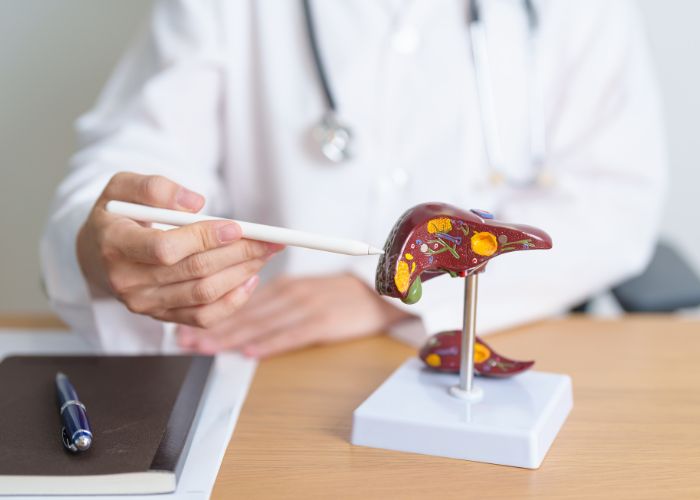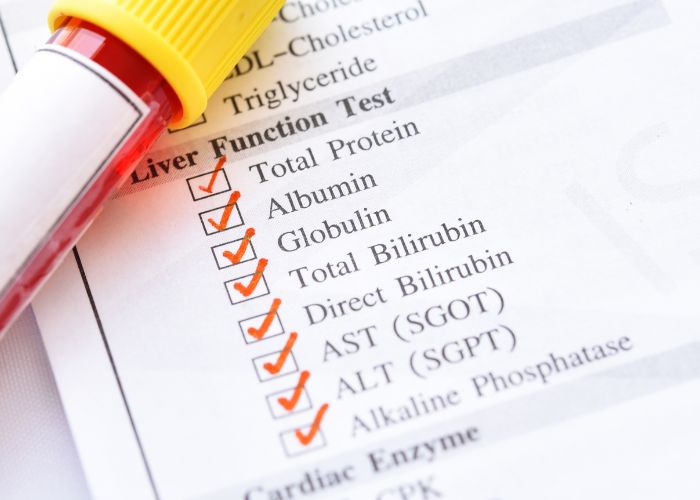Hepatology
What does hepatology deal with?
Hepatology is a medical specialty that deals with the functioning of the liver, its diseases and their related treatment methods. The liver is one of the most important organs of the human body, which performs many basic functions, such as regulation of metabolic processes, production and storage of vital substances, and removal of toxins. The practitioner of this field of science is the hepatologist, which in Hungary can be a gastroenterologist or an infectologist experienced in the treatment of liver diseases.

When should you consult a hepatologist?
Liver diseases can often remain symptom-free for years, which is why their early recognition is extremely important to avoid the worsening of the liver disease and the development of later complications.
Primarily, it is worth considering liver disease in the following cases:
- liver abnormalities detected during blood sampling (e.g. GPT [ALT], GOT [AST], ALP, GGT, bilirubin)
- abnormalities detected during an ultrasound examination (e.g. fat, enlargement or tumor)
- appearance of abdominal fluid (ascites)
- the appearance of lower extremity edema, if heart disease has been ruled out
- jaundice
Which diseases and conditions does hepatology deal with?
A hepatologist can help diagnose and treat the following liver diseases:
- fatty liver caused by a metabolic disorder (formerly known as non-alcoholic fatty liver [NAFL])
- liver damage caused by a drug side effect
- liver disease caused by alcohol
- viral hepatitis (e.g. hepatitis viruses)
- autoimmune liver diseases (e.g. PBC, PSC or autoimmune hepatitis)
- metabolic diseases that also affect the liver (e.g. hemochromatosis, Wilson’s disease)
- genetic diseases that also affect the liver (e.g. alpha-1-antitrypsin deficiency)
- examination of liver tumours
- cirrhosis
The course of the hepatological examination
During the first consultation, the hepatologist takes the anamnesis: they ask questions about previous illnesses, medications taken, lifestyle factors and current complaints. The hepatologist reviews previous test results. After that, they perform a physical examination and examine the patient’s abdomen by palpation. After the primary tests, the specialist will determine what further tests will be needed.
Which hepatology tests are available at Medicover?
A wide range of hepatological examinations is available at our clinics.
Tests requiring blood sampling:
- liver enzyme and liver function tests
- viral test (serology)
- autoimmune tests
- iron and copper metabolism tests
Imaging examinations:
- abdominal and pelvic ultrasound
- liver structural examination within the framework of the ultrasound examination (shear-wave elastography)
- CT scan
- MRI examination, which is performed with liver-specific contrast material

In some cases, a gastroenterological endoscopy is required (gastroscopy or colonoscopy), which is also available at Medicover.
What are the treatment options in hepatology?
There is no medical specialty in which dietary and lifestyle changes are not important, we place special emphasis on this during liver diseases, with the involvement of a dietitian if necessary. In addition, drug treatment and, in rarer cases, surgical intervention may become necessary.

